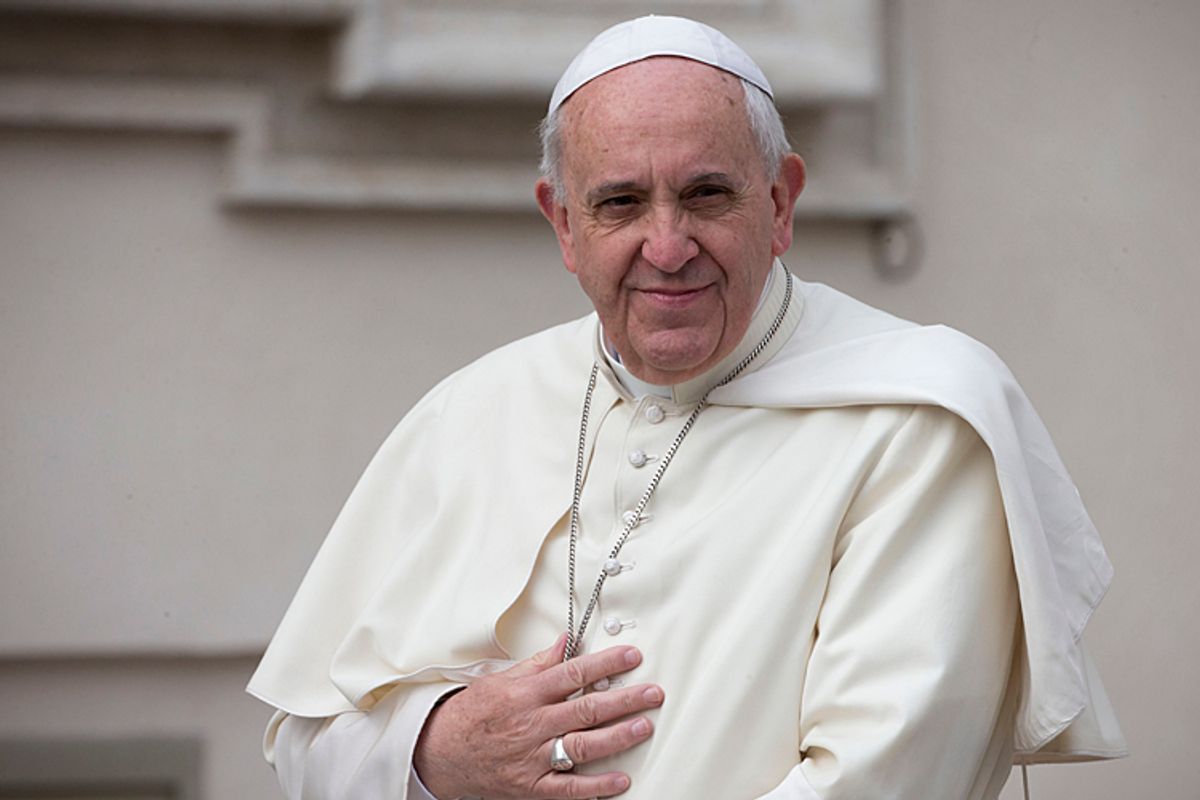Free market fundamentalism poses a grave threat to both economic security and the health of the planet, Pope Francis warns in a letter to Australian Prime Minister Tony Abbott, the host of this weekend's Group of 20 leaders' summit in Brisbane.
The letter touches on such issues as fair taxation, hunger, unemployment, financial regulation, climate change, terrorism and poverty. Francis, leader of the globe's 1.2 billion Roman Catholics, urges leaders to remember that "many lives are at stake behind these political and technical discussions" in Brisbane. "[I]t would indeed be regrettable if such discussions were to remain purely on the level of declarations of principle," the pope adds.
Francis outlines a turbulent state of global affairs, warning that economic insecurity and social exclusion risk violence and decrying the destructive consequences of "unbridled consumerism."
"Throughout the world, the G20 countries included, there are far too many women and men suffering from severe malnutrition, a rise in the number of the unemployed, an extremely high percentage of young people without work and an increase in social exclusion which can lead to criminal activity and even the recruitment of terrorists," he writes. "In addition, there are constant assaults on the natural environment, the result of unbridled consumerism, and this will have serious consequences for the world economy."
Drawing attention to human rights challenges like the dire situation confronting religious and ethnic minorities in the Middle East, the pope writes that leaders must also acknowledge "forms of aggression that are less evident but equally real and serious."
"I am referring specifically to abuses in the financial system such as those transactions that led to the 2008 crisis, and more generally, to speculation lacking political or juridical constraints and the mentality that maximization of profits is the final criterion of all economic activity," he continues.
Rather than allowing the free market to go unchecked, the pope calls on leaders to place the poor and vulnerable at the heart of their agenda.
"A mindset in which individuals are ultimately discarded will never achieve peace or justice," he writes. "Responsibility for the poor and the marginalized must therefore be an essential element of any political decision, whether on the national or the international level."



Shares